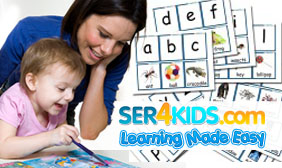Parents Are A Child’s Best Teacher

Finding the right early intervention services is invaluable to your child’s learning. But parents are a child’s best teacher when it comes to building on those basic concepts that involve play.
All the interactions of a parent can be used to help develop basic concepts, fine and gross motor skills within your child with special needs, such as:
- singing nursery rhymes or talking to your child,
- through touch, such as patting and rubbing
- playing with your child,
- dressing and feeding your child
These are all natural teaching opportunities you can take advantage of as a parent to help increase the learning of your child.
Quite often as parents we do not realise how our role can have an impact on our child’s learning but here is a list we discovered from Family Connect that will give an insight into how important your parent role as a ‘life teacher’ really is
- You know your child better than anyone else. You may also have a better idea of what and when he’s ready to learn.
- You spend more time with your child than anyone else does. You’re able to take advantage of the many ordinary events—things that happen throughout the day in the normal course of family life—that are opportunities to teach your child something.
- You give your child toys and common, everyday objects that can help him learn in a natural environment: your home.
- You provide opportunities for your child to practice what he has learned and a chance to experience the world under your guidance.
- You act as a role model. By starting early, you can teach your child good behaviors and habits that will last a lifetime.
- You involve your child in family life so friends and relatives learn how to interact with your child with special needs and how he learns to act with others and he learns how to act with others.
The role of a parent should always come first but often the line between teacher and parent can easily become blurred – especially when you have a child with special needs. By taking advantage of the learning opportunities with playful interactions early you will encourage your child to grow confident and work at being as independent as he can be in life.

 Cart (0)
Cart (0)







